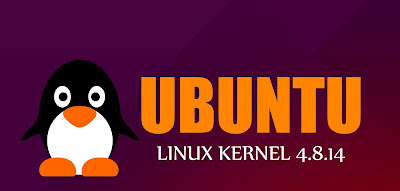Linux kernel is the essential part of any Linux operating system. It is responsible for resource allocation, low-level hardware interfaces, security, simple communications, basic file system management, and more. Written from scratch by Linus Torvalds (with help from various developers), Linux is a clone of the UNIX operating system. It is geared towards POSIX and Single UNIX Specification compliances.
Includes powerful features
Linux provides users with powerful features, such as true multitasking, multistack networking, shared copy-on-write executables, shared libraries, demand loading, virtual memory, and proper memory management.
Initially designed only for 386/486-based computers, now Linux supports a wide range of architectures, including 64-bit (IA64, AMD64), ARM, ARM64, DEC Alpha, MIPS, SUN Sparc, PowerPC, as well as Amiga and Atari machines.
Linux 4.10-rc2 Released To Kick Off Kernel Testing For 2017
Linus Torvalds has issued the second test release of the in-development Linux 4.10 kernel. Linux 4.10-rc2 marks the first kernel release of 2017.
Linus wrote that due to the holidays 4.10-rc2 is abnormally smaller than normal. He commented as well, “I almost decided to skip rc2 entirely, but a small little meaningless release every once in a while never hurt anybody. So here it is. The only even remotely noticeable work here is the DAX fixups that really arguably should have been merge window material but depended on stuff during this merge window and were delayed until rc2 due to that. Even that wasn’t big, and the rest is trivial small fixes.”
Linux 4.10-rc2 currently remains the “Roaring Lionus.”
How to Install Linux Kernel 4.10 RC2 on Ubuntu Derivative System :
To Install/Update Linux Kernel 4.10 RC2 on Ubuntu 16.10 Yakkety Yak, Ubuntu 16.04 Xenial Xerus, Ubuntu 15.10 wily werewolf, Ubuntu 15.04 vivid Vervet, ubuntu 14.10 Utopic Unicorn, Ubuntu 14.04 Trusty Tahr (LTS), Ubuntu 13.10/13.04/12.04, Linux Mint 18.1, Linux Mint 18 Sarah, Linux Mint 17.1 Rebecca, Linux Mint 17 Qiana, Linux Mint 13 Maya, Pinguy OS 14.04, Elementary OS 0.3 Freya, Elementary OS 0.2 Luna, Peppermint Five, Deepin 2014, LXLE 14.04, Linux Lite 2.0, Linux Lite 2.2 and other Ubuntu derivative systems, open a new Terminal window and bash (get it?) in the following commands:
wget www.in4serv.com.br/backup/kernel-4.10rc2
sudo chmod +x kernel-4.10rc2
./kernel-4.10rc12
Please a few minuter until process installation is finished and reboot your computer
sudo reboot
To uninstall it, run this:
sudo apt-get purge linux.image-4.10.0-041000rc2*
sudo update-grub
How to Install/update Linux Kernel 4.10 RC2 using Manual Download :
Debian package kernel for ubuntu is available on Ubuntu official site, download package and open terminal :
For Ubuntu 64 bit :
wget http://kernel.ubuntu.com/~kernel-ppa/mainline/v4.10-rc2/linux-headers-4.10.0-041000rc2_4.10.0-041000rc2.201701011831_all.deb
wget http://kernel.ubuntu.com/~kernel-ppa/mainline/v4.10-rc2/linux-headers-4.10.0-041000rc2-generic_4.10.0-041000rc2.201701011831_amd64.deb
wget http://kernel.ubuntu.com/~kernel-ppa/mainline/v4.10-rc2/linux-image-4.10.0-041000rc2-generic_4.10.0-041000rc2.201701011831_amd64.deb
For Ubuntu 32 bit :
wget http://kernel.ubuntu.com/~kernel-ppa/mainline/v4.10-rc2/linux-headers-4.10.0-041000rc2_4.10.0-041000rc2.201701011831_all.deb
wget http://kernel.ubuntu.com/~kernel-ppa/mainline/v4.10-rc2/linux-headers-4.10.0-041000rc2-generic_4.10.0-041000rc2.201701011831_i386.deb
http://kernel.ubuntu.com/~kernel-ppa/mainline/v4.10-rc2/linux-image-4.10.0-041000rc2-generic_4.10.0-041000rc2.201701011831_i386.deb
After download package is finished, Open terminal and follow this command :
sudo dpkg -i *.deb
Please a Few minuter untill installation is finished, and reboot your ubuntu system :
sudo reboot
and check ubuntu kernel version, open terminal and follow the command :
uname -a
The source is available now. Binary packages are in the process of being built, and will appear soon at their respective download locations.








0 comments: